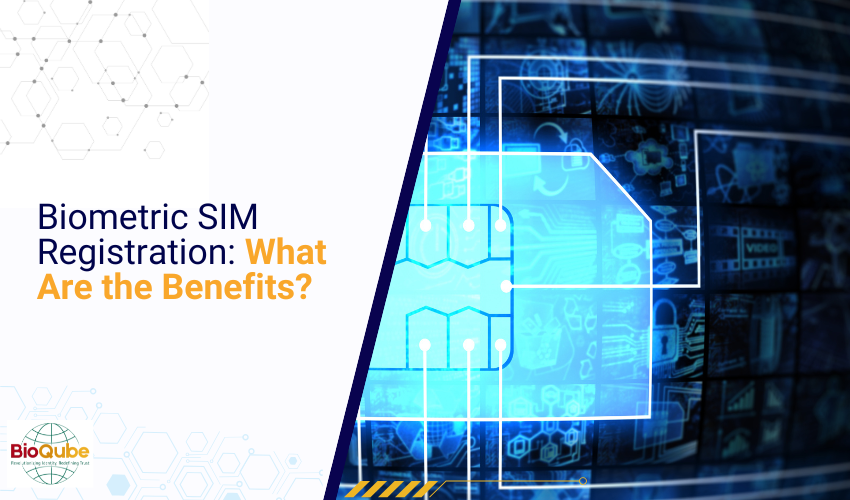
In the age of technology, identity theft, and fraud have become global problems. Biometric SIM registration is helping individuals fight back against this issue by registering the unique individual’s characteristics against a SIM card and assuring safer KYC onboarding.
According to a 2024 report, registering biometric data with SIM has become officially mandatory in 17 countries, including Saudi Arabia, China, the United Arab Emirates, and Venezuela. The practice is becoming common as it helps to find criminals committing offenses and prevents the misuse of identities.
What is Biometric SIM Registration?
Biometric SIM registration refers to completing the Know Your Customer (KYC) process during onboarding by registering an individual’s face or fingerprint characteristics with the documentation. By submitting the biometrics, the individual’s ID verification happens from a government database. It offers a range of advantages to SIM providers and holders.
3 Major Benefits of Biometric SIM Registration
Eliminates the Risk of Identity Theft or Fraud
One key advantage of linking biometrics with a SIM card is that fraudsters can’t forge or duplicate their identity. Hence, it eliminates the risk of identity theft and fraud, which has become a burden not just for the SIM card holder but also for the organizations providing the SIM card.
Many times, organizations providing the SIM card become liable for not preventing the misuse of a customer’s number. Moreover, biometric SIM registration also helps to minimize or eliminate criminal activities conducted via mobile numbers, as the biometric identity is linked to the SIM card.
Ensures Regulatory Compliance
Mobile Network Operators (MNOs) and governments can manage user data more accurately with biometric SIM registration. Suppose the data in the registration forms, along with the registered biometrics, matches with the biometrics in the government database. In that case, it ensures that the stakeholders are providing the SIM to the same user.
As a result, it helps the government and MNOs to ensure that the correct user is availing of the services provided and take preventive measures against any possible misuse. Additionally, it aids in enforcing telecom laws more effectively.
Streamlines the KYC Process
Whether a person issues an eSIM or a physical SIM, they must submit their document proofs. Once the MNO completes the verification process, the SIM is activated, and the user can avail of its services.
The biometric Know Your Customer (KYC) process streamlines verification by matching the submitted biometrics through face or fingerprint scanning with the biometrics already present in the government database. It could make the journey paperless and remove the hassle of carrying multiple forms or documents, as individuals can do it digitally.
Conclusion
Biometric SIM registration has become prevalent across countries. The technology is being rapidly adapted because of its numerous advantages. Primarily, telecom operators and the government can ensure secure user onboarding.
It even prevents instances of identity theft or fraud as it requires the end user to submit biometrics during the registration process, which is challenging to duplicate. Additionally, it streamlines KYC by making the verification process.
The adaptation of biometric identity is spreading across industries besides telecom. Today, we can witness the usage of this technology across healthcare, law enforcement, hotel and hospitality, BFSI, and many others. Get in touch with us today to learn how biometric identity can assist your organization during user onboarding and other processes.